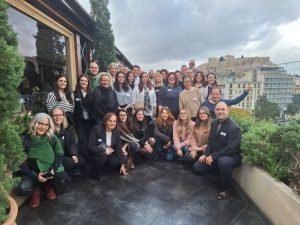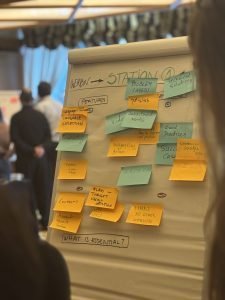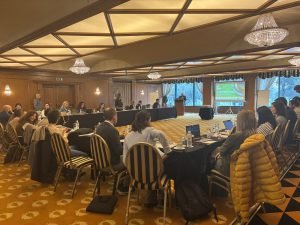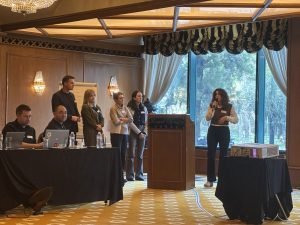The thERBN project, short for Thematic European Rural Bioeconomy Network, has officially kicked-off. Funded by the European Union under Grant Agreement No. 101182955, this innovative initiative, with a budget nearing €3 million, is set to run for 36 months. The project aims to empower farmers and foresters across Europe by providing sustainable solutions tailored to local needs, thereby promoting the transition towards a more circular bioeconomy.
The project’s kick-off meeting was held on the 21st and 22nd of January 2025, in Athens, Greece, hosted by Q-PLAN INTERNATIONAL. The meeting brought together partners from across Europe to align the objectives, collaborative strategies, and roadmap for the successful implementation of the project.

thERBN aims to establish a multi-actor thematic network that ridges the gap between existing innovative circular bioeconomy solutions and the real-world challenges faced by small-holder farmers and foresters at a local scale in rural areas. By identifying practical and sustainable approaches to managing biological by-products and residues, thERBN strives to empower practitioners with actionable solutions. As part of its mission, thERBN will ensure open access to long-term digital depositories, like the EU-Farmbook platform. The project will also develop tools in multiple languages to facilitate this knowledge-sharing and to enhance cross-border collaboration. Additionally, thERBN will offer policy recommendations to support the adoption of small-scale circular bioeconomy solutions on farms.
„The thERBN project is paving the way for practical, farmer-centered solutions in the circular bioeconomy. By integrating lessons from past initiatives and fostering active knowledge exchange, we ensure that innovations are both accessible and impactful for small farmers and foresters across Europe.” said Edelbis López Dávila, from UGent.
The thERBN consortium is led by Ghent University (UGent) in cocreation with 20 partners from 11 countries: Belgium, Spain, Greece, Italy, Lithuania, Slovakia, Romania, France, Poland, Germany, and Portugal. The consortium members include: AVEBIOM, COOP AG-AL ESP, CERTH, INASO – PASEGES, APRE, DEAFAL, VMU, Lithuanian agricultural council, BEC, SPPK, GEA, VALORIAL, AC3A, ERDN, ECO, Q-PLAN, IUNG-PIB, CONSULAI and LODR. The diverse actors include universities, research centres, cooperatives, and consultancy organisations, bringing a multidisciplinary group of people together to achieve the project’s goals.



